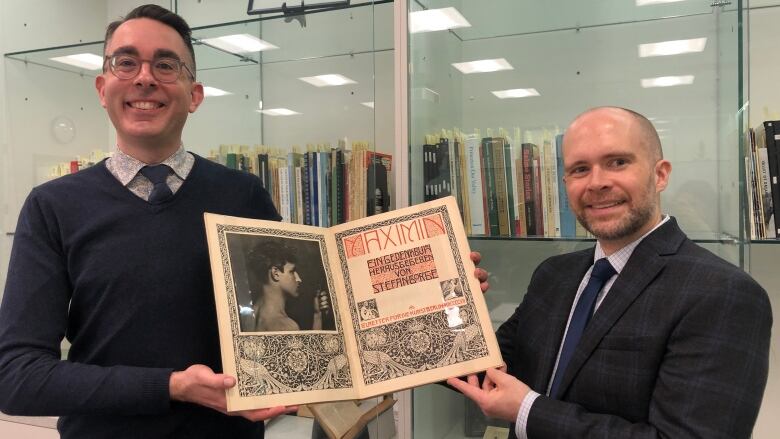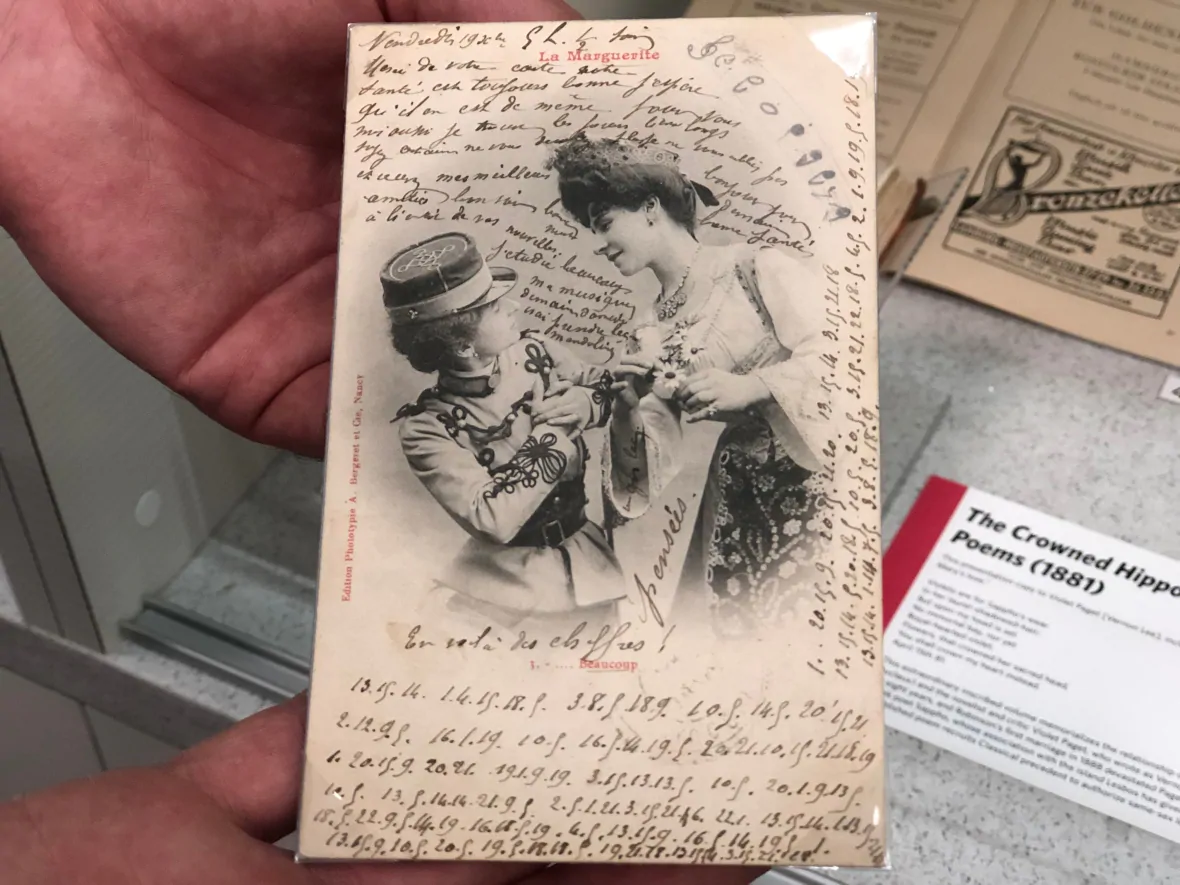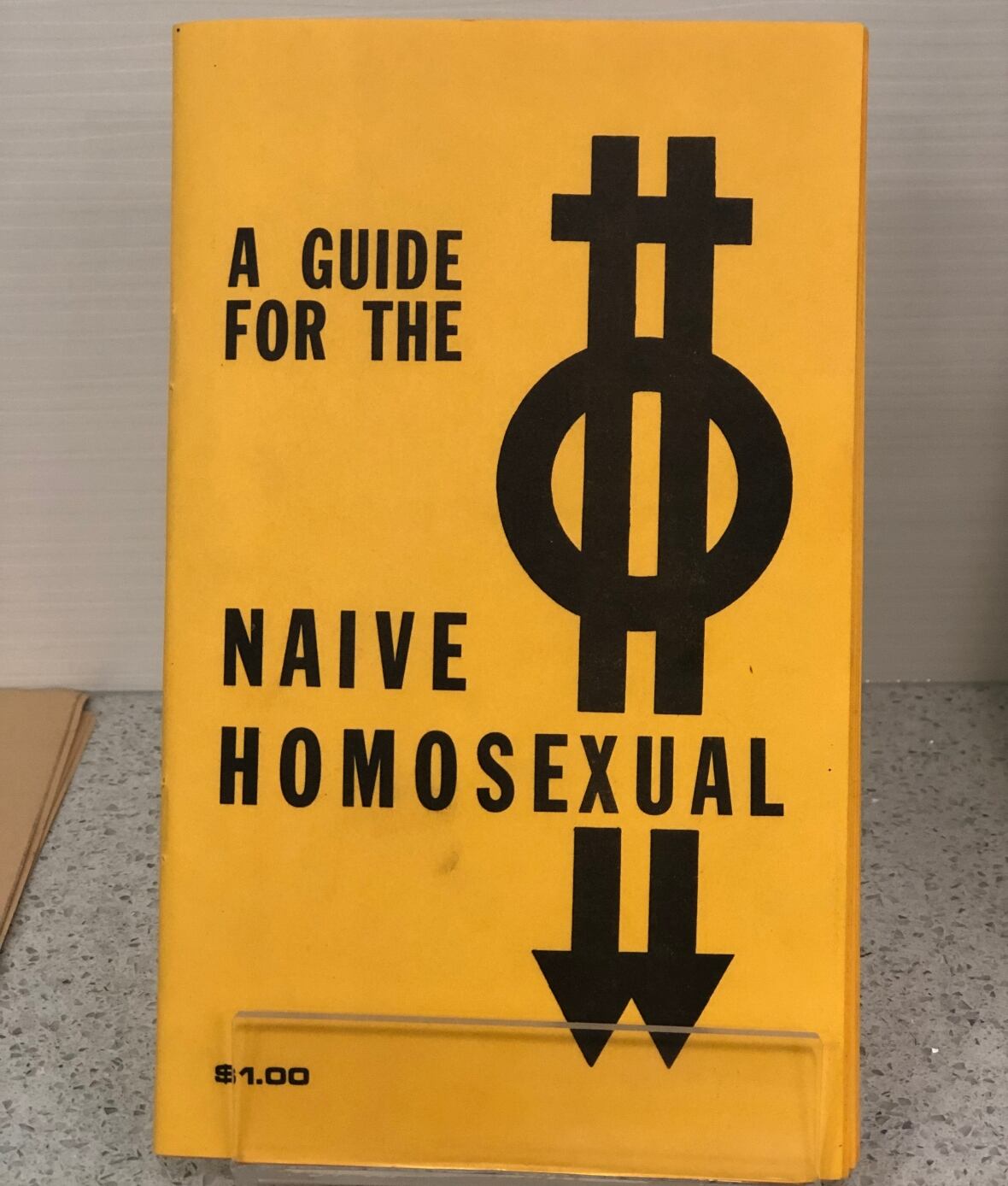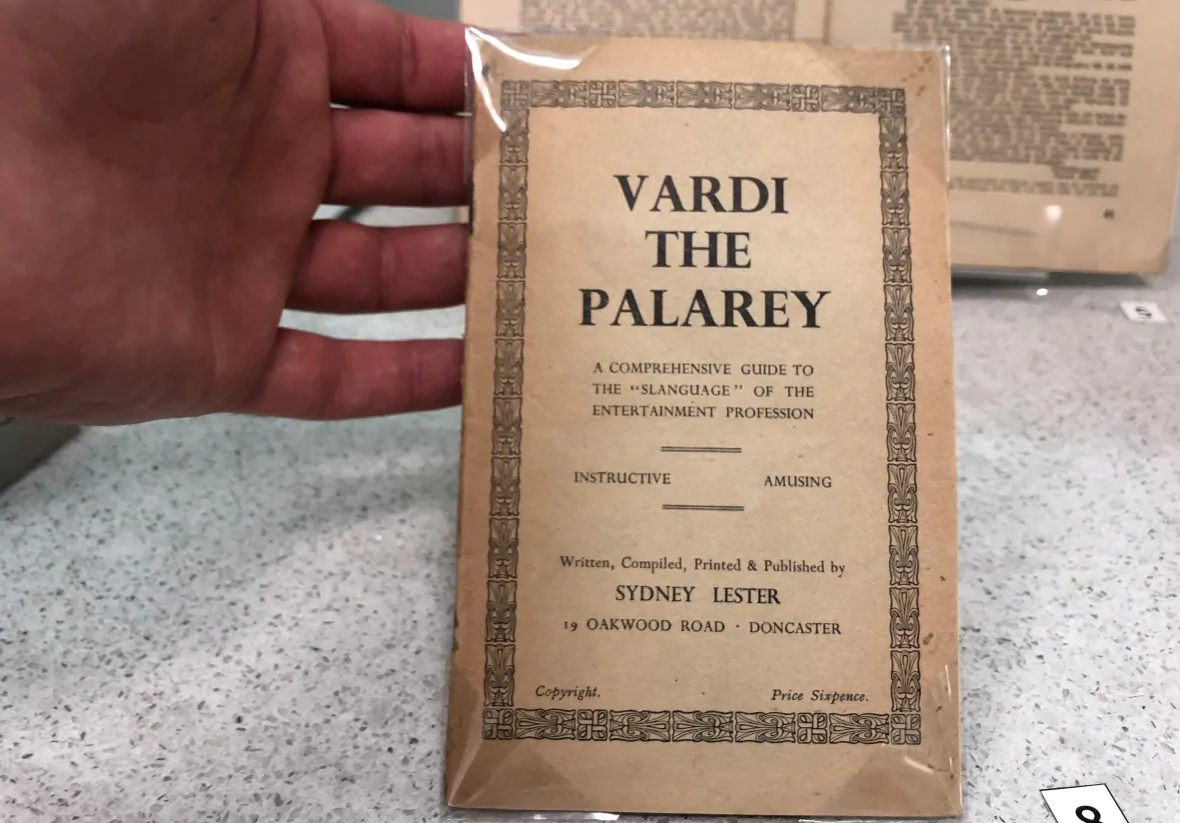Items dating back to 19th century reveal stories about homosexuality and key cultural moments

A new exhibit of rare books, flyers, postcards and pamphlets on display at UBC Okanagan in Kelowna unveils some unique artifacts of queer history.
A Queer Century, first shown at the university’s Vancouver campus, highlights some of the changing perceptions of gender and sexuality between 1869 to 1969, say the exhibit’s curators Gregory Mackie and Kyle Frackman.
Mackie said he and Kyle have been working to identify unknown or obscure queer materials from the library collections at UBC, and to acquire new materials.
“This has been a really exciting chance to showcase some of that work,” said Mackie, who is also an associate professor in English at UBC.
The exhibit, which includes an entire section on Oscar Wilde, is also the first one to be shared between the two campuses.
‘Paper time machines’
The curators specifically chose to feature this time frame because in 1869 homosexuality emerged as a named concept in Central Europe, and in 1969, homosexuality was decriminalized in Canada, said Frackman, an associate professor in German and Scandinavian studies at UBC.
Most of the artifacts and rare books came from the university’s own collection, as well as from donors and rare book dealers.
“We have many examples throughout the exhibition of what we like to call paper time machines — objects that will transport you back to another place and time that have their own stories embedded within them,” said Mackie.
The exhibit runs until the end of December and is open to the public. Below, is a sample of what’s inside.

This postcard from 1902 is an example of a clandestine communication method used by two women in France before homosexuality was decriminalized — a message is written in an alpha-numerical code.
“The object itself clearly speaks to a time in which these women could not express the affection they have for each other openly,” said Mackie.
Recently, a graduate student at UBC was able to decode the message into French and then translate it to English. Part of it says, “My beloved darling, I never forget you. I think about you every day.”

Mackie and Frackman stretched their timeline a bit to include some materials from the 1970s to reflect the gay liberation movement in Vancouver.
One of the items included is a pamphlet called A Guide for the Naive Homosexual published in 1971 by a Vancouver man.
“It was basically a guide to what it was like to be when you were newly out,” said Frackman. “Often very tough love, hard advice. But also filled with wit, and camp, and charm, and humour. So it’s a fascinating little archival object.”
This is one of possibly only three copies in the world of the first ever published Polari dictionary from 1937, said Frackman.
“Polari is this secret gay language that existed in the first half of the 20th century in the U.K. mainly,” he said.
“It’s a combination of Cockney slang, rhyming words, some words that have been corrupted and stolen from various romance languages and English.”
by Dominika Lirette · CBC News
Source – CBC








